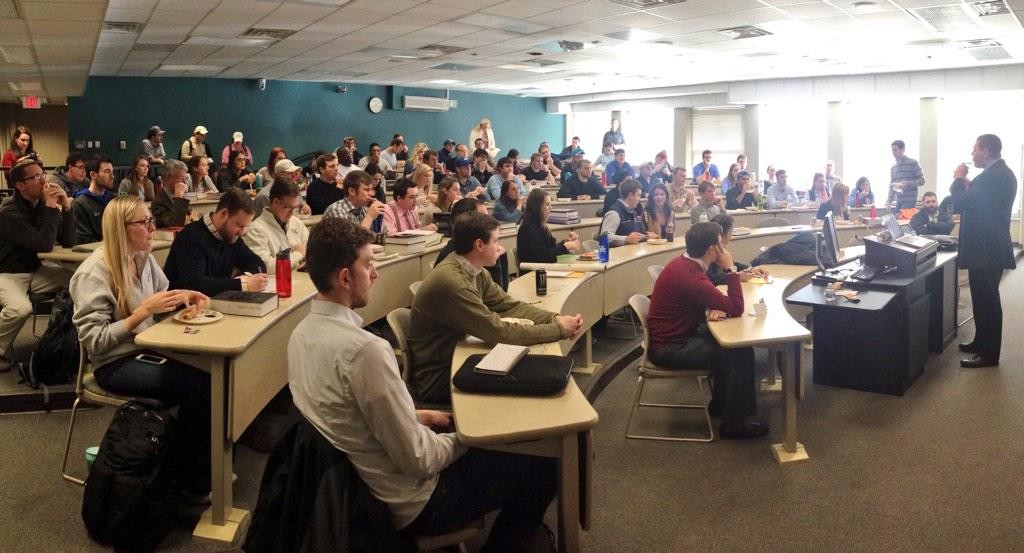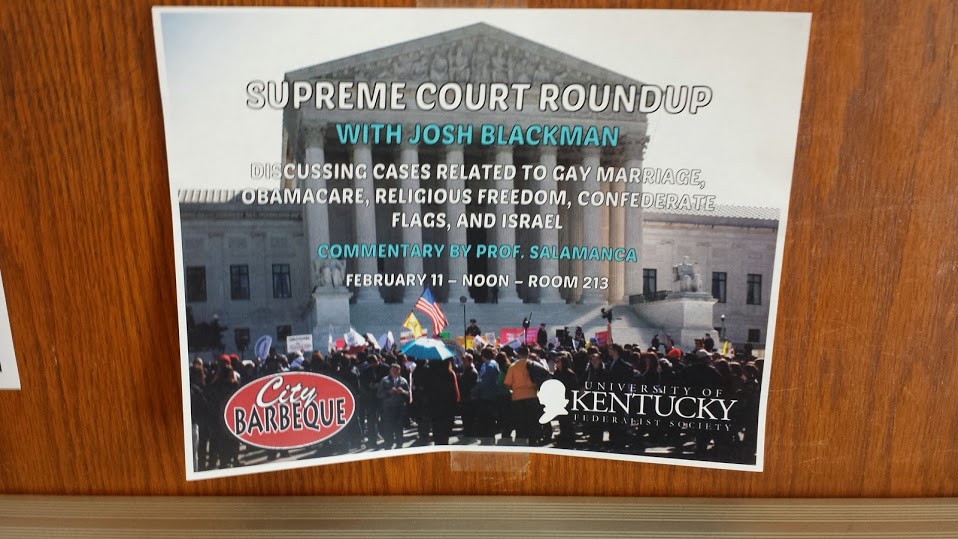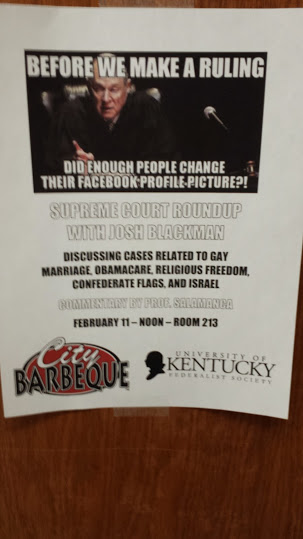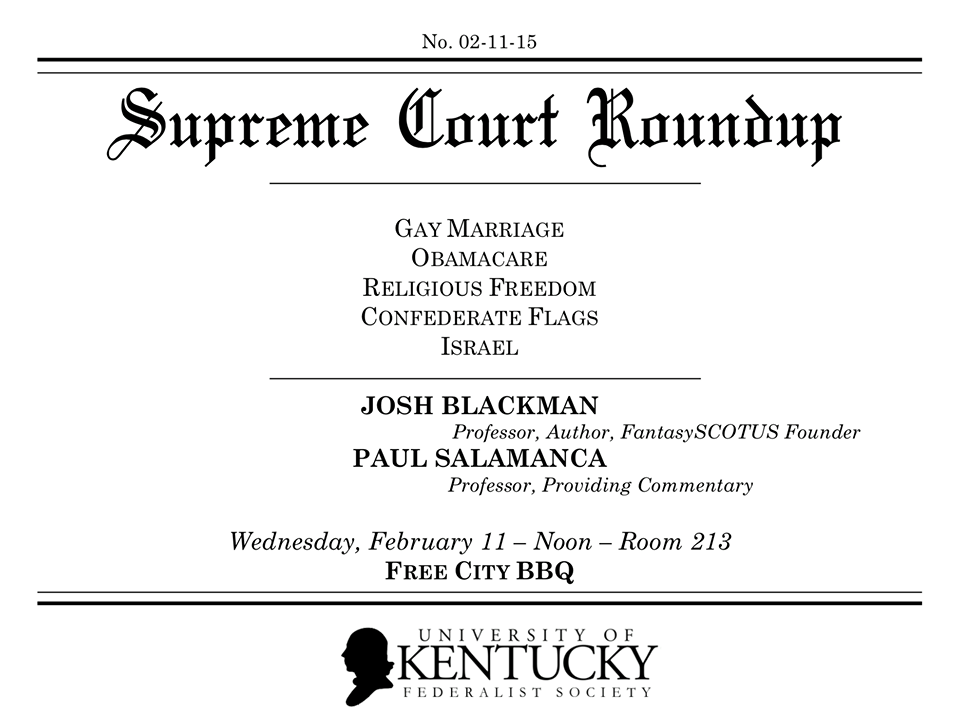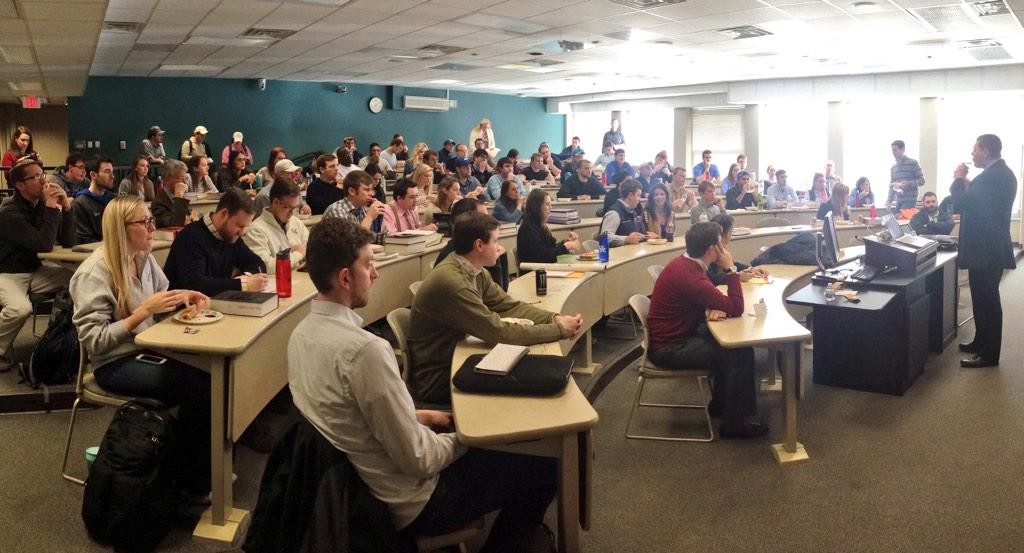The Hill reports that Senator Cornyn has reintroduced the Concealed Carry Reciprocity Act. While the text of the 2015 version is not yet available, the 2014 version is available here. In short, a state would be required to recognize concealed carry permits from all 50 states, and treat them in the same manner as those who issued in that state. The problem arises because states have vastly differing standards for qualifying for concealed carry permits. Some “shall issue” states require the government to issue permits, so long as the applicant passes a background check and can demonstrate some level of competency with a handgun (the length of testing varies). Other “may issue” states require that the applicant demonstrate a “serious need” for a gun. In places like California or New York, obtaining such a permit is virtually impossible for most people. While some courts have found these “may issue” licensing regimes are unconstitutional, others have been upheld.
Alas, the Supreme Court has not seen fit to resolve this important issue. Under Heller, the question of conceal carry remains somewhat open. I think Heller can be read to support carrying outside the home (why would the opinion need to mention limitations in “sensitive places,” if the right was limited to the home), but I will concede it is not ironclad. Until the Supreme Court acts and takes a case, does Congress have the power to implement a law such as the Concealed Carry Reciprocity Act?
Two possible answers jump to mind. First, section 5 of the 14th Amendment. Could Congress use its powers to enforce the provisions of the first 8 amendments of the Constitution, including the 2nd Amendment? I blogged about this idea in 2011 (here and here), when a similar bill was proposed based on Section 5. However, this interpretation runs into serious Boerne problems. With RFRA, Congress attempted to expand the protection of the First Amendment beyond that which the Supreme Court adopted in Employment Division v. Smith. The Court rejected this approach, explaining (very clearly) that the Justices, and not Congress, get to define the contours of the First Amendment. (Whether this is correct or not is a moot point).
I think a similar analysis pertains for the conceal carry law. While it pains me that the Court has not seen to take a single 2nd Amendment case about carrying outside the home, even though many have been neatly teed up for the Justices, the state of the law now is not resolved. The Congress can’t fill in the gaps, and arguably broaden the scope of 2nd Amendment protections.
Further, there would be “congruence and proportionality” issues, as this law imposes significant federalism costs by forcing states to recognize permits from other states that have much more lax licensing schemes. To get here, the Court would have to hold not only that the 2nd Amendment applies outside the home, but “may issue” regimes are unconstitutional. It is not enough that a state allows the right to be exercised (all 50 states have some permitting regime), but Congress would dictate how the state should offer it. The Section 5 analysis does not carry the day here.
The second possible answer, is the commerce clause coupled with the necessary and proper clause. The text of the bill does not explicitly cite interstate commerce as a basis for the bill, but it mentions guns traveling in interstate commerce. There are a few problems here. First, it is perverse that conservatives, who have for decades railed against an expansive commerce clause jurisprudence, would suddenly cite the commerce clause to advance gun rights. Even Justice Thomas and Scalia noted the partial birth abortion ban was potentially deficient under the commerce clause (see here, here, here, and here).
Second, putting aside the chutzpah of conservatives citing the commerce clause (alliteration!), the argument is weak because Congress is not regulating the guns, but the licensing regime. Commerce alone will not carry the day, but Congress will have to rely on what Justice Scalia called in Printz “the last, best hope of those who defend ultra vires congressional action”–the Necessary and Proper Clause. Here, there is a potential constitutional wrinkle post-NFIB. While it may indeed be necessary (read “convenient,” per M’Culloch) for Congress to require that states recognize out-of-state permits to promote interstate commerce, is it “proper”? NFIB clarified this second prong of N&P analysis, and asks whether this is a “proper” intrusion into state sovereignty. (See Will Baude’s excellent article). Specifically, would this law require the exercise of a “great substantive and independent power” that would need to be “implied as incidental to” or “used as a means of executing” the Commerce Power? In other words, would forcing a state to recognize out-of-state gun licenses, amount to such a great imposition on state sovereignty, to no longer be proper?
Justice Scalia alluded to this issue in his dissent in Bond v. United States (Part II), in the context of the treaty power, though there is no reason to think commerce should work much differently–if anything, the treaty powers are greater than the commerce powers due to concerns over international relations.
Holland places Congress only one treaty away from acquiring a general police power. The Necessary and Proper Clause cannot bear such weight. As Chief Justice Marshall said regarding it, no “great substantive and independent power” can be “implied as incidental to other powers, or used as a means of executing them.” McCulloch v. Maryland, 4 Wheat. 316, 411 (1819); see Baude, Rethinking the Federal Eminent Domain Power, 122 Yale L.J. 1738, 1749–1755 (2013). No law that flattens the principle of state sovereignty, whether or not “necessary,” can be said to be “proper.” As an old, well-known treatise put it, “it would not be a proper or constitutional exercise of the treaty-making power to provide that Congress should have a general legislative authority over a subject which has not been given it by the Constitution.” 1 W. Willoughby, The Constitutional Law of the United States § 216, p. 504 (1910).
The Conceal Carry Law would attempt to give Congress a “general legislative authority” and proscribe rules concerning the police power for all 50 states. But even more than that, it would allow a single state–that with the most permissive gun laws (Utah or Florida?)–to define the nationwide standard for conceal carry laws. If one state decided background checks were not necessary, than all 50 states would have to comply. This application of N&P turns federalism on its head. Rather than states serving as laboratories, all states would be bound by the boldest experiment.
I should make clear that my reading of the 2nd Amendment and Heller protects a right to concealed carry outside the home, but I can’t envision any Supreme Court decision mandating that all 50 states must adhere to the same standard as the most lax state. Congress can’t achieve that result, through either its commerce or N&P powers. The structural protections of our Constitution–enumerated powers and state sovereignty–should not be so easily cast aside. If the Court does (as it should) hold that the 2nd Amendment protects conceal carry, regimes in dozens of states will have to be changed.
As it stands now, almost three dozen states already recognize permits from other states through an interstate compact. But excluded from this list are virtually all of the “may issue” states, which do not want to recognize more permissive licenses from Utah or Florida.
In the end, this debate is purely academic. Even if it passes a Senate filibuster, the President will veto it in a heartbeat. But it is sad that conservatives would rely on such a dubious constitutional standard to expand a fundamental constitutional right.
